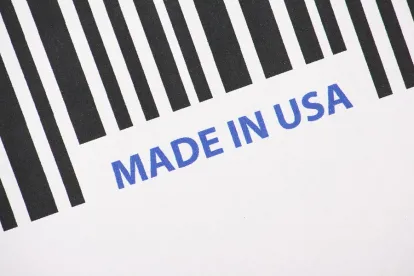The next phase for the Section 232 steel and aluminum tariffs process is focused on the effort to create exceptions for countries and exclusions for products.
While the formal procedures for seeking country exceptions and product exclusions have not been announced, based on information we have heard from several different sources, the following elements will likely be announced soon. Details are subject to change, but companies with an interest in this matter should begin preparing for the exclusion process now. This means:
• Collecting data on the steel and aluminum products companies utilize, and the countries of origin of the products;
• Analyzing the domestic availability and prices for replacement materials;
• Developing arguments about the economic or national security harms that would occur if products were not available or affordable; and
• Identifying the threat that tariffs pose to the ability of a company to compete or survive.
COUNTRY EXCEPTIONS
President Trump’s tariff proclamations include language that invite exception requests from U.S. allies and leave open the possibility of granting exceptions if countries can demonstrate that they would be consistent with U.S. national security interests.
This type of post-hoc country exception process is unusual and it is not clear how many, if any, countries beyond Mexico and Canada (who were exempted from the proclamations initially) will receive exceptions from the tariffs.
U.S. Trade Representative Robert Lighthizer recently met with trade officials from the European Union and Japan, but the talks did not appear to produce any clear results. While officials from EU and Japan expressed hope that they will eventually receive exceptions, it is difficult to predict whether President Trump will grant such relief.
PRODUCT EXCLUSIONS
The tariffs proclamations require the Secretary of Commerce to issue procedures for requests for product exclusions by March 18th. While details of the regulations governing exclusion petitions for the new steel and aluminum tariffs have yet to be finalized, based on past precedents and information we have gathered we expect that:
• Petitions will only be able to be filed by “importers of record,” and will have to be filed on a product-by-product (but not country-by-country) basis.
• The importer of record is the entity or person responsible for ensuring goods comply with U.S. laws and regulations, filing legally required documents with, and paying any applicable duties to U.S. Customs and Border Patrol (CBP). If a company imports different types of products, multiple petitions will likely have to be submitted.
• Petitions will be submitted electronically, and petitions that are deemed complete will be subject to a 30-day public comment period.
• After public comments are collected, the Secretaries of State, Treasury, and Defense, in coordination with White House officials, will determine if a product is produced in the U.S. in a sufficient and reasonably available amount and of a satisfactory quality, or if other national security interests justify an exclusion.
• The standards for these reviews are not subject to any fixed or bright-line tests, but will instead leave room for discretion and persuasion.
• It is our understanding that the goal will be to provide a response to petitions within 90 days of filing. We believe 90 days is the minimum amount of time companies should expect a resolution of their requests.



 />i
/>i

